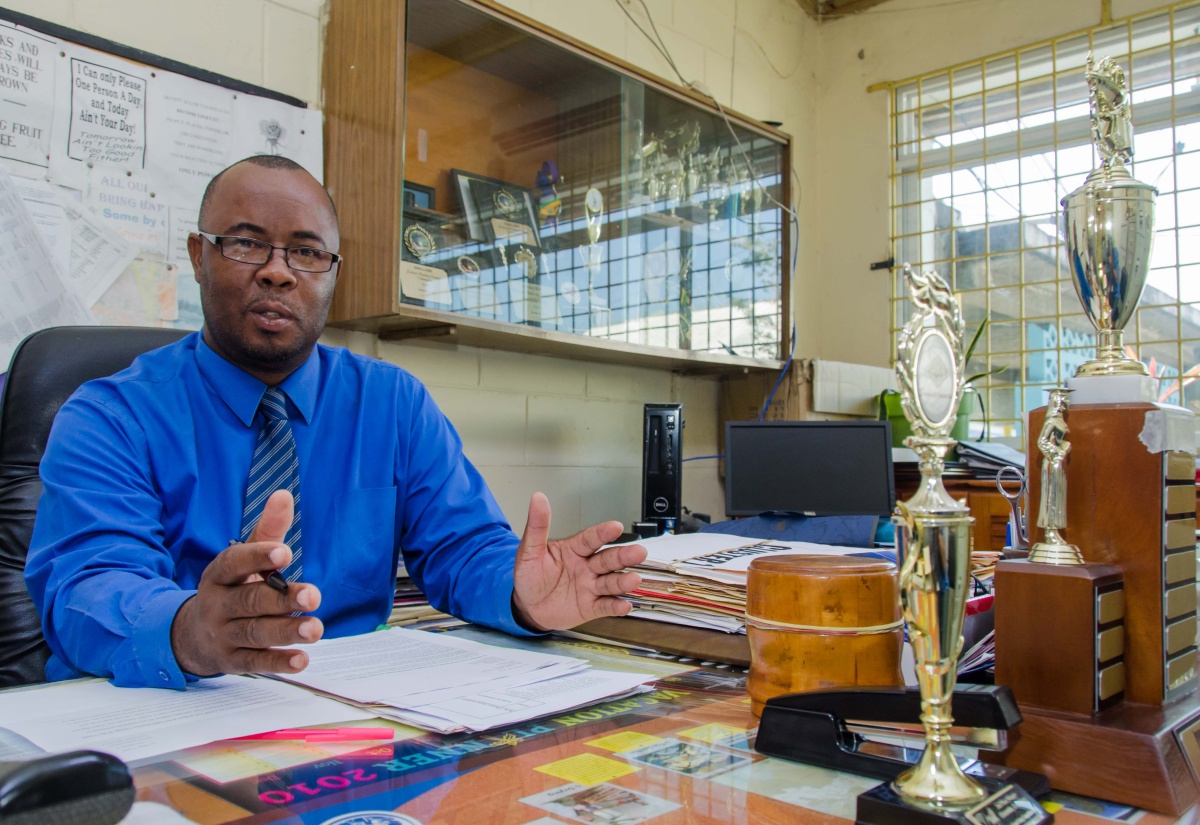Papine Targets Higher Achievement in Traditional Subjects
By: , March 4, 2015The Key Point:
The Facts
- The institution has been putting measures in place aimed at boosting student attainment in Mathematics, English Language, English Literature, Social Studies, Human and Social Biology, Chemistry, among other subjects.
- Papine, one of the island’s non-traditional high schools, is receiving invaluable support from the Education Ministry, and the country’s two premier universities and national training institute, which are located close to the institution’s Gordon Town Road compound.
The Full Story
Long recognised for outstanding achievements in the technical and vocational subjects, the Papine High School, under the leadership of Principal, Leighton Christie, is working to build a reputation of success in the traditional subject areas.
The institution has been putting measures in place aimed at boosting student attainment in Mathematics, English Language, English Literature, Social Studies, Human and Social Biology, Chemistry, among other subjects.
“We have tried, over time, to improve what we are doing at the institution, in terms of the academic progress of the students and this is something that we have… started for the past five or six years now (and will continue),” Mr. Christie tells JIS News in a recent interview.
He says the aim is to ensure that students are fully equipped to pursue higher education or to enter the workforce.
“We focus a lot on the vocational training and twinned with that now are the core subject areas, the academic areas, so we place emphasis too on those because we want when our children leave the institution, they can matriculate into tertiary institutions and they can move on to the world of work,” he notes.
Papine, one of the island’s non-traditional high schools, is receiving invaluable support from the Education Ministry, and the country’s two premier universities and national training institute, which are located close to the institution’s Gordon Town Road compound.
Mr. Christie informs that the school is already seeing success, with improvements in almost all subject areas in the 2014 Caribbean Secondary Education Certificate (CSEC) examinations.
Greatest Improvement in Math
Papine High showed the greatest improvement in Mathematics at CSEC that year, with a 39 percentage point increase over 2013. A total of 123 students sat the examination, with 59 per cent receiving passes, an improvement over the 20 per cent pass rate in 2013.
The institution was among 96 schools across the island, which benefited from initiatives implemented by the Ministry’s National Mathematics Team to improve outcomes in the subject.
In the area of English Language, Mr. Christie tells JIS News that the pass rate moved from 40 per cent to 60 per cent. “For the Sciences (particularly), Human and Social Biology, we have been doing very well in that too, with over 70 per cent of the cohort sitting (that examination) and we are steadily moving up in that area,” he points out.
100 per cent Passes in Vocational Subjects
Turning to the vocational subject areas, he says most of the passes attained were in the “high 90s, going over to 100 per cent in some areas.”
“In the results we have last year, all those students in food, clothing, management, they have all passed. When we take building construction again for example, we have 26 students selecting that area and they are all passing,” he informs.
Students can choose from over 13 vocational skill areas offered at the institution. These include building technology (construction), mechanical engineering, industrial arts, electrical and electronic technology. There is also hospitality (food and nutrition), an area that Mr. Christie indicates “we see the students gravitating to.”
Partnerships for Success
The Principal commends the hard work of the teachers for the achievements, and the partnerships that have been forged with the University of the West Indies (UWI), the University of Technology, and the HEART Trust/NTA’s Vocational Training Development Institute (VTDI).
He informs that teachers from UTech have been providing instruction in Physics under a programme introduced three years ago. “We also use the lab facilities at UTech on the weekends for the students, so that is the sort of support that we get from them,” he says.
He notes that the partnership with UTech has also benefited staff. “We now have a programme where they …are training our technical vocational teachers in computer-aided drawing,” Mr. Christie says.
Mr. Christie informs that UWI has been providing training for staff to enhance their professional development. “Any programme we call on them to support, they do support us,” he tells JIS News, adding that collaborations are ongoing with the HEART Trust/NTA.
The Principal says improvements in academic performance will remain one of the top priorities of the institution’s agenda and called on everyone to come on board and support the initiative.
Respect Agenda
In addition to the academics, the Papine Principal says programmes are being developed at the 56-year old institution to improve discipline and facilitate greater participation and involvement by parents.
One such initiative is the Respect Agenda, where students and parents monitor best practices and behaviour.
“So, we put four students in a quality circle, and four parents also will be in that quality circle, so while the students monitor their behaviour, the parents will also be able to monitor what is happening with the children as well,” he explains.
A key aspect of the Respect Agenda is getting parents and students to understand the importance of education. Mr. Christie says “parents are being reoriented to understand that their children should not only be walking past the gates of the tertiary institutions but they should be enrolled as students.”
“We do not want them to walk through and pick an ackee or pick a mango, we want them to pass through the university and access education in the walls of the university,” he says, adding that the institution wants to produce productive citizens and future leaders of the country.


